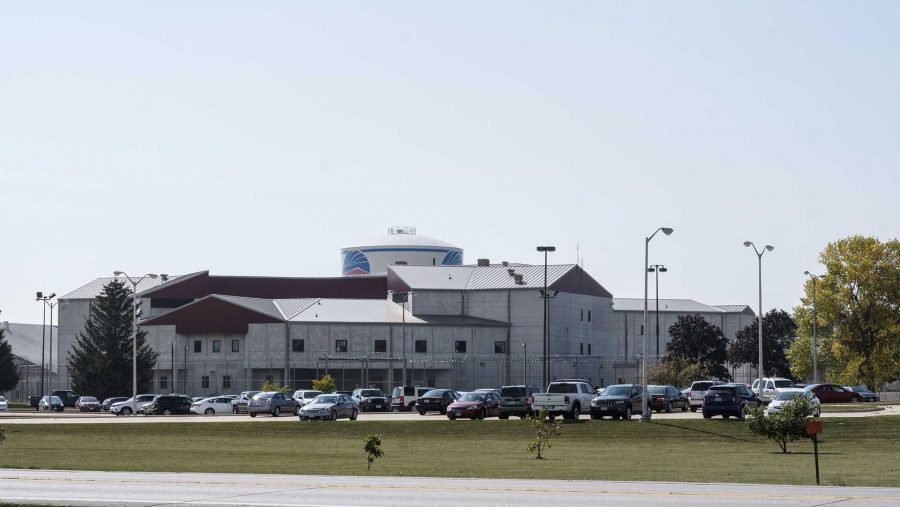Baller: Rehabilitation in Iowa prisons needs to be more humane
Problems with incarceration often seem distant and irrelevant to our lives, but the lives of imprisoned people shouldn’t be ignored.
File photo (Nick Rohlman/The Daily Iowan)
June 18, 2019
“It’s almost more humane to kill someone immediately than it is to intentionally bury a man alive.” This is how Thomas Silverstein experienced prison, and it provides a first-person view of the injustices and horrors of solitary confinement in American prisons.
Silverstein spent 36 years in solitary confinement, more than any other imprisoned American. His cell in the Colorado supermax prison was nine feet by 10 feet and was enough space for him to take ten steps. He also was only allowed 15 minutes per month on the phone. Silverstein passed away on May 11, at age 67 while in intensive care at a hospital in Denver. This was his first time out of solitary since 1987.
To be clear, Silverstein committed terrible crimes and was involved with terrible organizations. But regardless of his criminal past, the Constitution still applies to all Americans. Silverstein and his attorneys argued that the treatment he received was breaking his Eighth Amendment rights; Silverstein was indeed receiving “cruel and unusual punishment.”
This isn’t just happening in some far off place, it’s happening in our own backyard. Action needs to be taken to prevent instances like Silverstein in the Hawkeye State.
“If the goal of prison is to have individuals learn from their mistakes and potentially be released, this is not an effective method to producing change.
In Iowa, if a refractory prisoner confined in jail disorderly or willfully destroys or injures any part of the jail, the sheriff can secure the individual or cause them to be in solitary confinement, but not for more than 10 days for any one offense. During this time the person may be fed minimum diet requirements unless necessary for the preservation of the individual’s’ health. According to Craig Haney, director of legal studies at the University of California, Santa Cruz, this proves to be very bad in a number of areas and can even cause permanent damage to their health. In some instances, death can even occur, hence Silverstein. If the goal of prison is to have individuals learn from their mistakes and potentially be released back into the world, this is not an effective method to producing change. By dehumanizing imprisoned people and literally making them ill and distorted, both prisoners and the prison itself fail to benefit from solitary confinement.
Felon disenfranchisement is another example of an injustice happening right in our own state. According to the Brennan Center for Justice, Iowa and Kentucky are the only two states to impose permanent disenfranchisement for all people with felony convictions. The only way to get voting rights back is by applying to the Office of the Governor. At the start of the 2019 legislative session, Gov. Kim Reynolds proposed an amednment to the Iowa Constitution that would allow felons to retain their voting rights after they complete their sentences without an application process. However, until this proposal is made into law, Iowa does not have a permanent solution to this problem. It is crucial for votes to represent all aspects of society. Those who went to prison and are back out into the real world are a crucial aspect of society. They know what works to provoke change and what does not. They also have also experienced a life that many of us do not. This gains perspective and can help contribute to our society.
Since the job of lawmakers has not proven to prepare the lives of individuals in solitary confinement to getting better and healthy, citizens need to speak up to their lawmakers. They are the only ones who can make the official change to this problem, so play your part in helping spread the word to the lawmakers who are ill-informed or simply choose to ignore this issue. Imprisoned individuals cannot continue to have their physical and mental health on the line even more than before they came to prison. Acting in inhumane ways will never lead to the goal of reintegrating prisoners into a safe society. In order to create a safe society, prisoners need a safe environment and to know they can change for the better.













